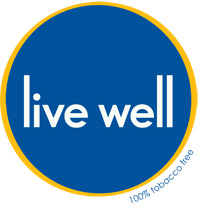 Frequently Asked Questions
Frequently Asked Questions
Frequently Asked Questions (FAQs):
What do I have to gain from a tobacco-free campus policy?
A tobacco-free campus policy offers greater accessibility and a safer, cleaner, and more healthful environment for students, employees and visitors. Colleges can save money on cleaning and maintenance costs. LCC spends $10,000 per year on cigarette littler collection and disposal. Colleges can also gain a marketing and recruiting advantage, as the majority of staff and students would prefer a working and learning environment free of secondhand smoke.
Secondhand smoke, also known as environmental tobacco smoke, is a Class A carcinogen. Its many detrimental effects on health are well established and include triggering asthma attacks, causing lung cancer, and causing cardiovascular and other lung diseases. Attempts to eradicate exposure to secondhand smoke through limiting smoking to enclosed spaces or outside entrance areas and sidewalks is ineffective because smoke can easily travel through open doors, through heating and air circulation vents, people must walk on sidewalks through the smoke of others, and smoke easily travels outside any established boundaries or designated areas.
Lane Community College is invested, not only in academic achievement, but also in developing life skills that will promote individual and civic wellness. Colleges prepare students to cope with the reality of living situations. One emerging reality is that fewer and fewer spaces permit smoking and tobacco use. In growing numbers, worksites, restaurants, public buildings, shopping malls, healthcare and transportation facilities are 100% smoke-free.
Smoking is a legal adult behavior. Don't people have the right to smoke on their campus?
There is no "right to smoke* under any federal, state or local law. The College owns its buildings and grounds and has the right and responsibility to enact policies to reduce injuries and illness by eliminating hazards and unsafe acts and conditions from its premises. Tobacco-free policies are not about forcing Individuals to change their lifestyle or behavior. Rather, they intend to protect the greater campus community and College interests.
The College is not taking away your right to smoke. The College is not requiring you to quit smoking. You may continue with your choice to smoke, but only in designated areas on Lane’s main campus. Smoking is not allowed at any other Lane Community College campus. With this policy, Lane has the opportunity to effectively educate the College’s population and the communities’ efforts to develop a healthier lifestyle.
Why should Lane Community College be concerned about smoking?
Lane Community College has a responsibility to its students and employees to provide a safe and healthful environment. Research findings show that tobacco use in general, including smoking and breathing secondhand smoke, constitute a significant health hazard. In addition to causing direct health hazards, smoking contributes to college costs in other ways, including potential fire damage, cleaning and maintenance costs, and costs associated with absenteeism, health care, and medical insurance. For several years, Lane Community College has provided a Wellness Program for its employees. Providing a tobacco-free campus is another example of Lane’s commitment to student and employee wellness.
Do tobacco-free campus policies impact enrollment?
Surveys consistently show that all other things being equal, most students would prefer to attend a tobacco-free college. There is no evidence that enrollment has declined at any of the more than 100 colleges and universities in the U.S. that have gone tobacco-free. One early leader, Clark College in Vancouver, Washington, has seen enrollment increase every quarter since going tobacco-free in 2003. Portland Community College, the Oregon Coast Community College and Mt. Hood are now tobacco free and Clackamas CC has proposed it.
Will a tobacco-free policy impact events that bring visitors to the campus?
Yes, it will make the campus a more attractive venue for these events. As the public's expectation for environments free of secondhand smoke continues to grow, community event organizers will favor tobacco-free campuses when choosing event locations.
Will there be cessation programs available for students, faculty and staff?
Yes. A study completed by the Centers for Disease Control and Prevention, Management of Nicotine Addiction notes that 70% of current smokers want to quit smoking. With that in mind, Lane Community College is committed to providing assistance to all students and employees who want to quit using tobacco. See the Cessation Resources page for more information.
Can I smoke in my car?
Yes, but we do not encourage this activity but rather encourage individuals to seek assistance in quitting. Lane Community College does not plan to monitor smoking in private vehicles.
|
|


